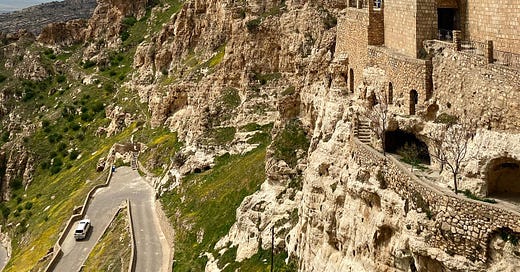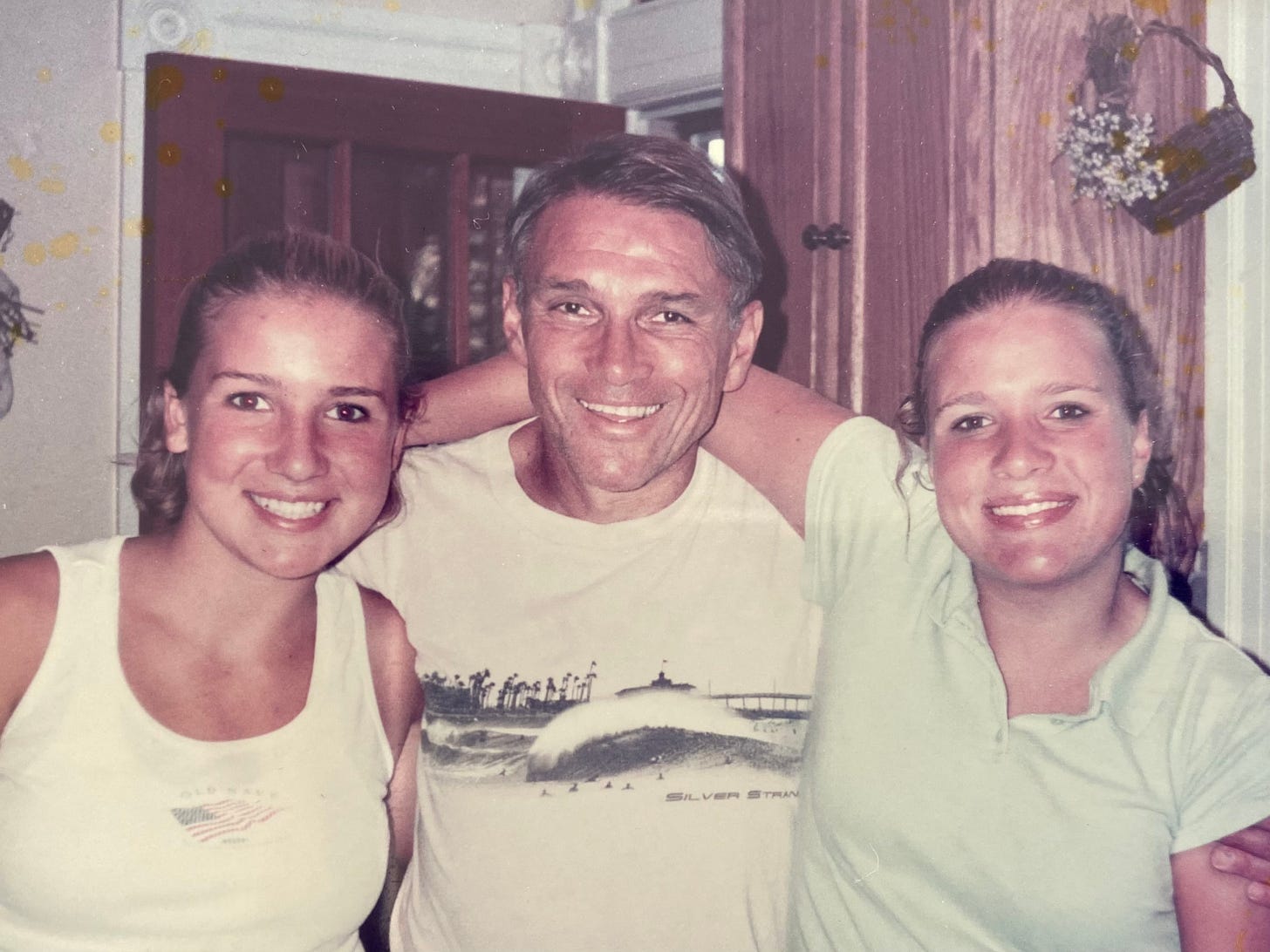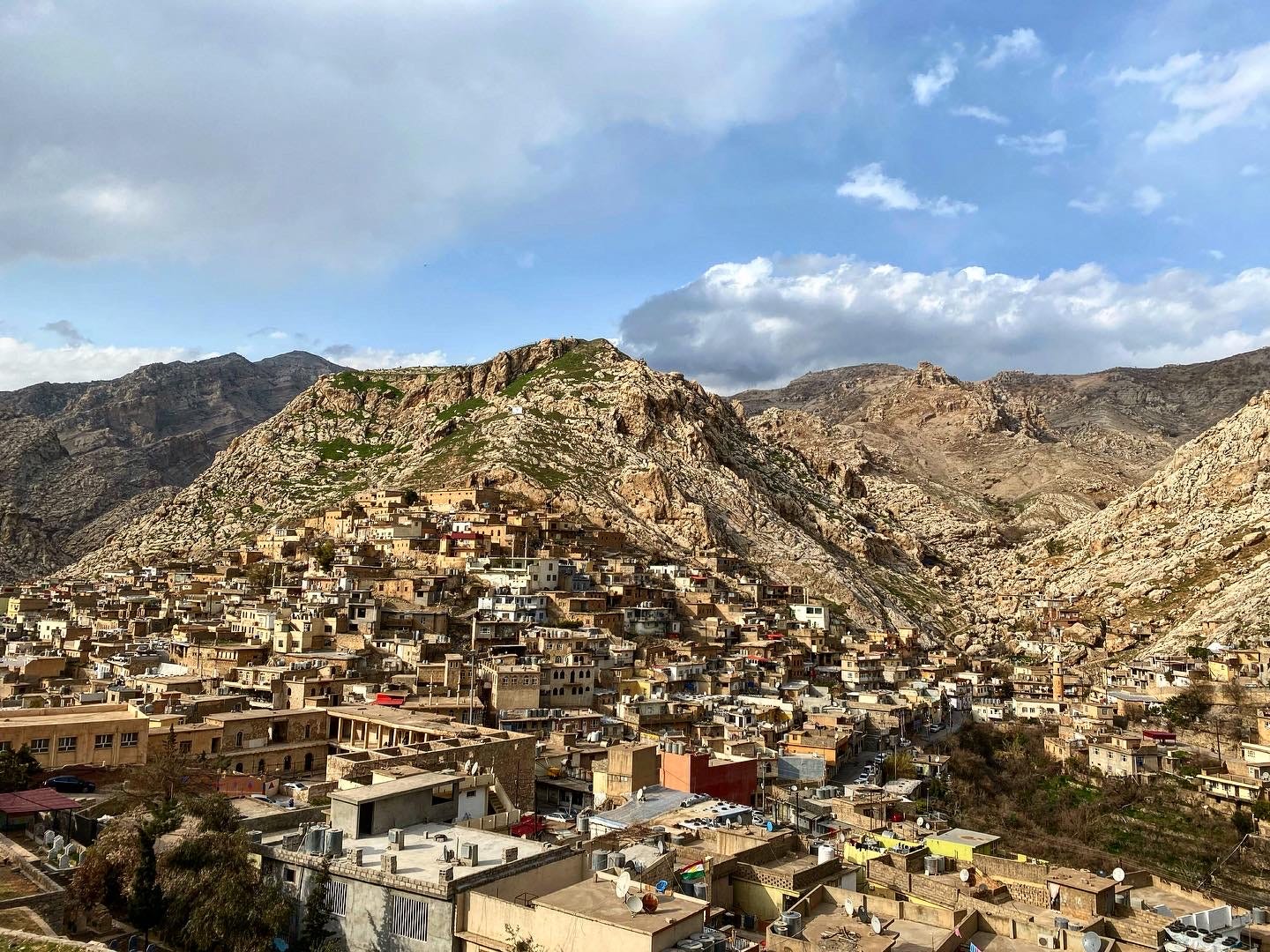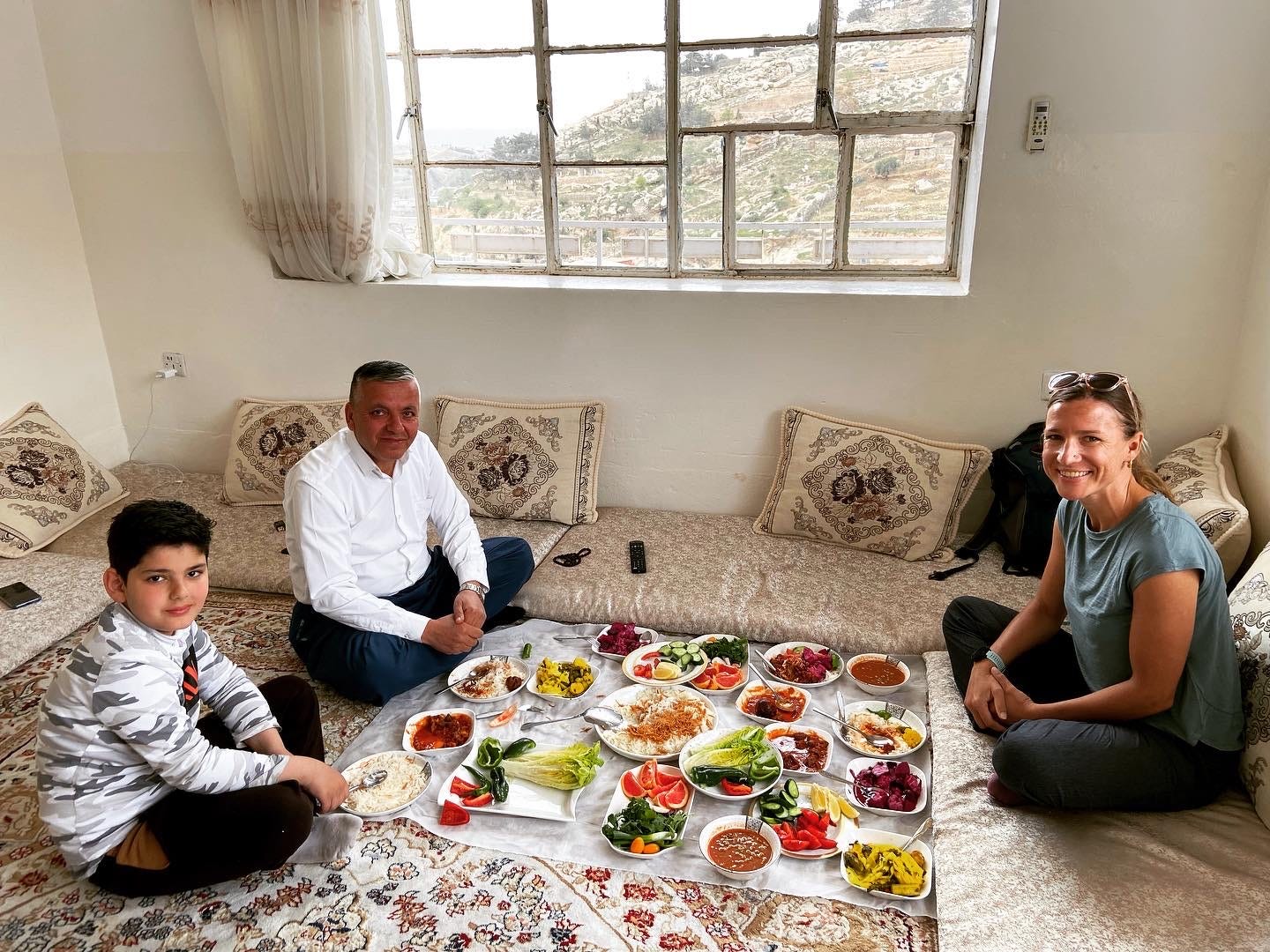Iraqi Kurdistan
Hi all, sorry for the long-delayed update. Last time I posted we were in Cairo, getting excited to spend a week with friends in Jordan. The morning we flew to Amman, I learned my dad had been in an accident, and a day after that we were on a plane home to California. I spent the last week of his life hanging out with him every day in the hospital, and finally said goodbye on March 12.
I’ve been putting off writing a newsletter, since it feels weird to not say anything but also I’m not ready yet (or maybe ever) to write anything meaningful publicly. And regardless, I don’t think this travel newsletter is the right venue for my sadness. You can read the obituary my sister and I wrote here.
—
Chris and I are continuing on our travels, so after a very sad but also very nice two weeks with family in the Bay Area we flew to Iraqi Kurdistan.
Iraq sounds Very Scary to Americans, but Iraqi Kurdistan,* the autonomous region in the north, is actually quite safe and incredibly welcoming! We stayed with friends in Erbil for a week and day-trip road-tripped to the places we wanted to see. Again, I realize this sounds crazy but trust me when I say it was totally fine!
Our first destination was Akre, a hillside town dating from the 7th century. We started with a little hike up the mountain behind the town to see the ruins of the citadel, built in 580 BC. There’s not much to see—these are pretty ruined ruins—but a man with his two sons beckoned us to follow and showed us that there are layers on layers of caves underneath the ancient castle.
He then invited us to lunch at their house in the town. This is a phenomenon we’ve read about; I think everyone who has been to Kurdistan has been welcomed into at least one local’s home. We stayed for a couple hours, chatting (via google translate) with the man and his family, and enjoying juice and snacks and eventually a delicious and very colorful meal! They even invited us to spend the night, but we politely declined to head back to Erbil.
Kurdistan is famous for its local hospitality. Through our week there, we were invited to multiple peoples’ homes, a check-point policeman had us roll down our window to say “you are welcome here!”, and everyone was just so nice to us everywhere we went. In many places in the Middle East it’s prudent to say we’re Canadian, but in Kurdistan we are definitely American. (The ins and outs of the relationship are extensive, but suffice it to say that they like us.)
Our other stops included a hike in Rawanduz Canyon, and touring the Rabban Hormizd Monastery built into a hillside outside Alqosh, and the Yazidi Temple at Lalish Valley.
We were there during Nowruz, the festival celebrating the onset of spring, so people were on holiday and families were picnicking everywhere. Seriously, I’ve never seen a people so committed to picnicking as the Kurds; every green patch along the roads had cars pulled over, fires blazing and tents and chairs put up, or just a blanket spread on the ground. It wasn’t actually that warm, but much like how Americans will barbecue rain or shine on 4th of July, Kurdish families were out and about dressed in their best and celebrating the springtime.
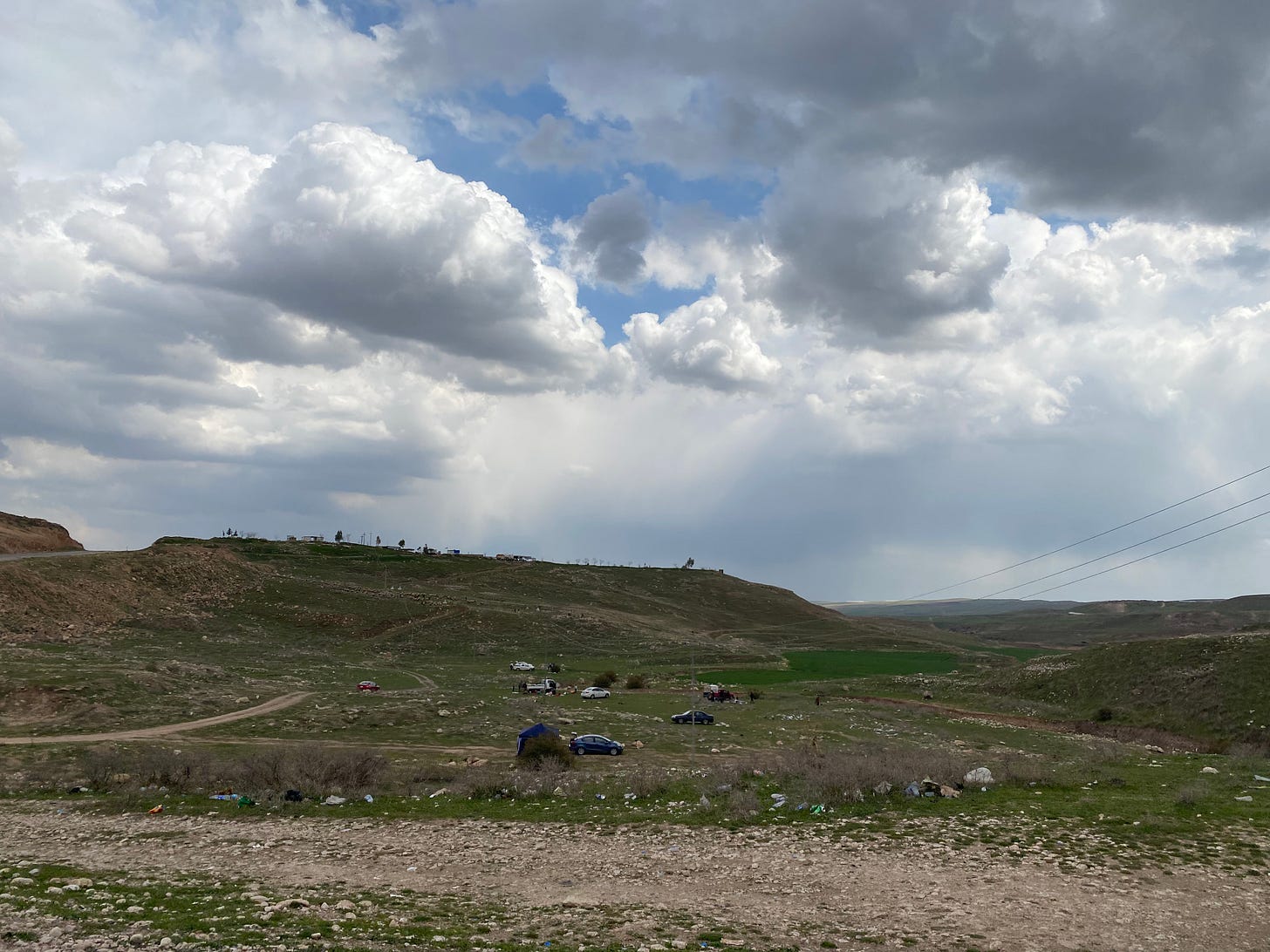
—
* Kurdistan, or “land of the Kurds,” is often defined as anywhere Kurds are in the majority, covering northern Iraq, southeastern Turkey, northwestern Iran, and northern Syria. Some Kurdish nationalists have sought to establish a country covering the entire region, while others have advocated for more Kurdish autonomy within each respective state. Iraqi Kurdistan first gained autonomy in 1970, which was re-confirmed in 2005. From a tourism perspective, it is completely separate from Iraq — you’d need a different visa to go to what we started referring to as “Iraq Iraq.”
